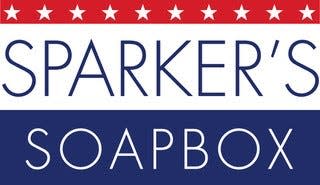Sparker's Soapbox: Florida’s primary election process explained
This is the first of several articles in a “Be a More Informed Voter” series by Sandy Parker of Sparker's Soapbox that will appear in the coming months.

As the election season gets underway, an understanding of Florida’s primary election process is crucial if you want your vote to make a difference. That’s because the laws governing primary elections in Florida are different from those in other states, and some rules even vary by political party.

Here is some information to help you be a more informed voter in the upcoming primaries.
Partisan vs. nonpartisan elections
Partisan elections involve political parties. In partisan primary elections, voters choose the parties’ candidates to face off in the general election. The candidate who receives the most votes wins. An example is the presidential preference primary (PPP).
The Florida Republican Party will hold its PPP on March 19 to choose its nominee for president. The Florida Democratic Party will not have a PPP because its State Executive Committee submitted only one candidate, Joe Biden, to appear on its PPP ballot. Under Florida law, that candidate is deemed the winner.
Nonpartisan elections do not consider political parties. The candidate who gets 50% of the votes + 1 is declared the winner. If no candidate gets the majority of the votes, the top two vote-getters face off in the general election. Examples of nonpartisan elections are elections for school boards and judges.
Florida is a closed primary state
Florida is one of just eight states in the country with a closed primary system. The others are Delaware, Kentucky, Nevada, New Mexico, New York, Oregon, and Pennsylvania.
How you are registered in a closed primary state determines which party's primary elections you may vote in.
Specifically, in Florida, only those registered with a party may vote in its partisan primary. For example, only registered Republicans may vote in the Republican Party primary, and only registered Democrats may vote in the Democratic Party primary.
Independent or unaffiliated voters are, by definition, excluded from participating in either party’s nomination contest. This is intended to prevent "cross-over" voting.
The deadline to register with a party to vote in its primary is 29 days before election day.
Universal primary exception and write-in loophole
A 1998 amendment to the Florida Constitution provides an exception to Florida’s closed primary rule. It says that all voters, regardless of the party they are registered with, may vote in any party's primary election if the winner of that primary will face no opposition in the general election.
Upon passage of the amendment, the political parties sought an opinion on whether write-in candidates constituted valid opposition. The state said yes, and the courts upheld that view.
In practice, the write-in loophole provides a way to circumvent an otherwise universal primary.
Conclusion
Understanding the distinction between partisan and nonpartisan elections, the intricacies of closed primaries, and the need to register with a political party in a timely manner to participate in its closed primary is vital for informed voting.
Awareness of exceptions like universal primaries and the write-in loophole is also important.
In 2024, most Florida elections will be for partisan offices, with partisan primaries often deciding the winner in one-party-dominated areas like Collier County.
If you want to vote in any of this year’s partisan primary elections, the deadline to register or change your party affiliation with the Supervisor of Elections is February 20th for the PPP and July 22nd for all other primaries including Congress, state Legislature, county commission, and more.
Sandy Parker is the founder and publisher of Sparker's Soapbox, whose mission is to encourage and facilitate informed voting in Collier County and throughout Florida. Learn more at sparkers-soapbox.com
This article originally appeared on Fort Myers News-Press: Sparker's Soapbox: Florida’s primary election process explained
